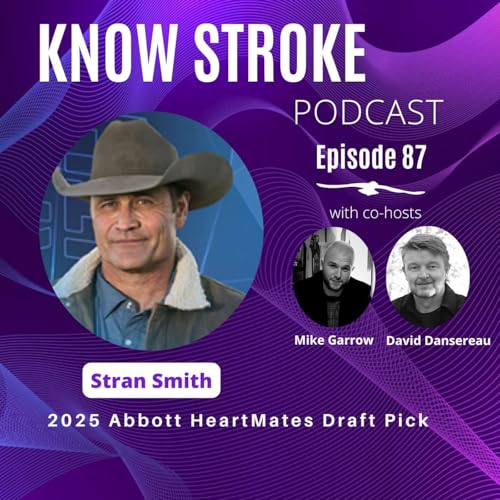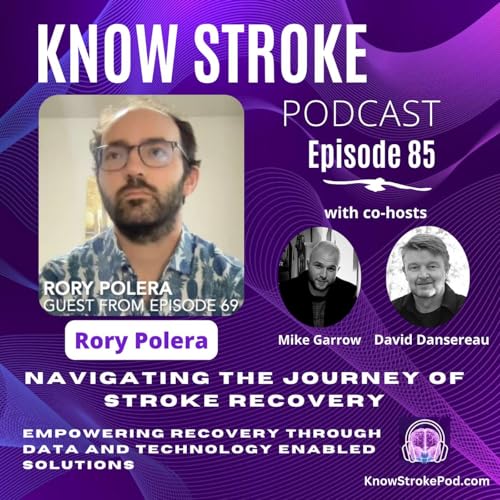Chime In, Send Us a Text Message!
Episode 87 Our Guest: Stran Smith 2025 'Draft Pick' for Abbott HeartMates Program
Stran is a legendary tie-down roping cowboy from Childress, Texas. He competed professionally for over 20 years, appearing 11 times at the National Finals Rodeo (NFR), and won the PRCA World Championship in 2008. In 2025 he was inducted into the rodeo Hall of Fame.
In this episode, Stran shares his incredible journey from being a professional cowboy to overcoming a life-altering stroke. He discusses the challenges of co-authoring a book, his involvement with the Abbott HeartMates Program and the importance of community support during any type of heart or health related recovery. Stran emphasizes the significance of connection and encouragement for stroke survivors and highlights the HeartMates program as a vital resource for those facing similar challenges. His story is one of resilience, purpose, and the unwavering belief that there is hope and light ahead if you don’t give up.
More on his stroke: At age 32 he suffered a stroke caused by a previously undetected patent foramen ovale (PFO)—a small opening between the upper chambers of the heart. Doctors initially told him he’d likely never ride again. He underwent PFO closure using the Abbott Amplatzer Occluder, which enabled his remarkable return to competition and eventual world championship.
Abbott HeartMates: In May 2025, Abbott introduced Stran as one of its newest “HeartMates”—heart health champions who share inspiring stories of recovery and resilience. Learn more about Abbott's HeartMates Program and community. https://www.abbott.com/heartmates.html
We cover how Stran got involved with HeartMates, what it means to him to be recognized in this year's "draft class" and connect with other HeartMates including Tedy Bruschi and Damar Hamlin and his message to others who may currently be facing health challenges. Finally we discuss his latest accomplishment since retiring from rodeo. He’s co-authored a bestselling leadership book, A Colonel & A Cowboy: Strategies of the Elite which we cover in this episode. Follow Stran on Instagram @stransmithofficial
Support Our Show!
Thank you for helping us to continue to make great content. We appreciate your generosity!
Support the show
Show credits:
Music intro credit to Jake Dansereau. Our intro welcome is the voice of Caroline Goggin, a stroke survivor and our first podcast guest! Please listen to her inspiring story on Episode 2 of the podcast.
Connect with Us and Share our Show on Social:
Website | Linkedin | Twitter | YouTube | Facebook | Substack
Know Stroke Podcast Disclaimer:
Our podcast and media advertising services are for informational purposes only and do not constitute the practice of medical advice, diagnosis or treatment.
Get Our Podcast News Updates on Substack
 31 m
31 m 1 h y 7 m
1 h y 7 m Oct 5 202555 m
Oct 5 202555 m 1 h y 3 m
1 h y 3 m 2 h y 12 m
2 h y 12 m 1 h y 6 m
1 h y 6 m 55 m
55 m 57 m
57 m
